

I am a Research Group Leader at the Institute for Quantum Optics and Quantum Information (IQOQI) Vienna, a Lecturer at the University of Vienna, and a Visiting Fellow at the Perimeter Institute for Theoretical Physics in Waterloo, Canada.
My research is motivated by Wheeler’s “It From Bit” paradigm: to understand the foundations of physics, we have to take an information-theoretic perspective. I have worked on deriving quantum theory from simple principles, on the resource-theoretic approach to thermodynamics, and I have suggested a view (“Inductive Idealism”) in which not the external world, but a mathematical notion of the first person is fundamental (more topics and details below).

My research has led to several awards, including a Canada Research Chair, the Birkhoff-von Neumann prize, and ÖAW’s Best Paper Award. I am extremely grateful for the opportunity to work with a group of talented and enthusiastic young researchers at IQOQI Vienna.
Spring 2024
- Welcome Manuel Mekonnen to our group at IQOQI! We will look at “Local operations on quantum fields” in the context of a new Quantum Science Austria project.
- Our new FWF project “Generalized contextuality in large quantum systems” is starting. Looking forward to collaborating with our experiment and theory colleagues in Zurich and Gdańsk.
- Continuing our FWF project on “Black-box quantum information under spacetime symmetries” and the Adversarial Collaboration with philosopher Kelvin McQueen.
- To contact me, you can write to markus.mueller (at-symbol) oeaw.ac.at.
Upcoming
- 24 May 2024: Lange Nacht der Forschung, Wien.
- 30 May – 02 June 2024: New Directions in the Foundations of Physics, Logar Valley, Slovenia.
- 26 Nov 2024: Public talk at Urania Graz. “Quantenphysik und Realität: was wir wissen, was wir vermuten, und worüber wir uns wundern”.
Selected Papers
Thinking twice inside the box — is Wigner’s friend really quantum?
We argue that the gist of Wigner’s friend is a feature we call “Restriction A”, and that it underlies a much broader class of (non-quantum) enigmas in the foundations of physics and philosophy, including cosmology’s Boltzmann brain problem.
Correlating Thermal Machines and the Second Law at the Nanoscale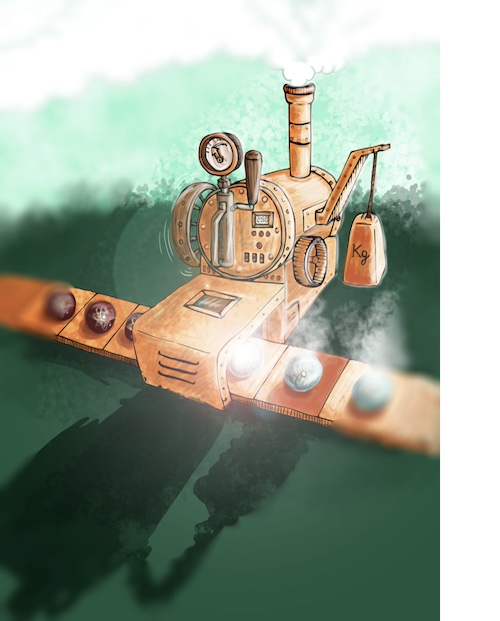 We show that the Helmholtz free energy F has a physical interpretation without any averaging or thermodynamic limit: it determines the (im)possibility of state transitions of single, small quantum systems if the heat engine is allowed to become correlated or entangled with the work medium while preserving its own state.
We show that the Helmholtz free energy F has a physical interpretation without any averaging or thermodynamic limit: it determines the (im)possibility of state transitions of single, small quantum systems if the heat engine is allowed to become correlated or entangled with the work medium while preserving its own state.
A derivation of quantum theory from physical requirements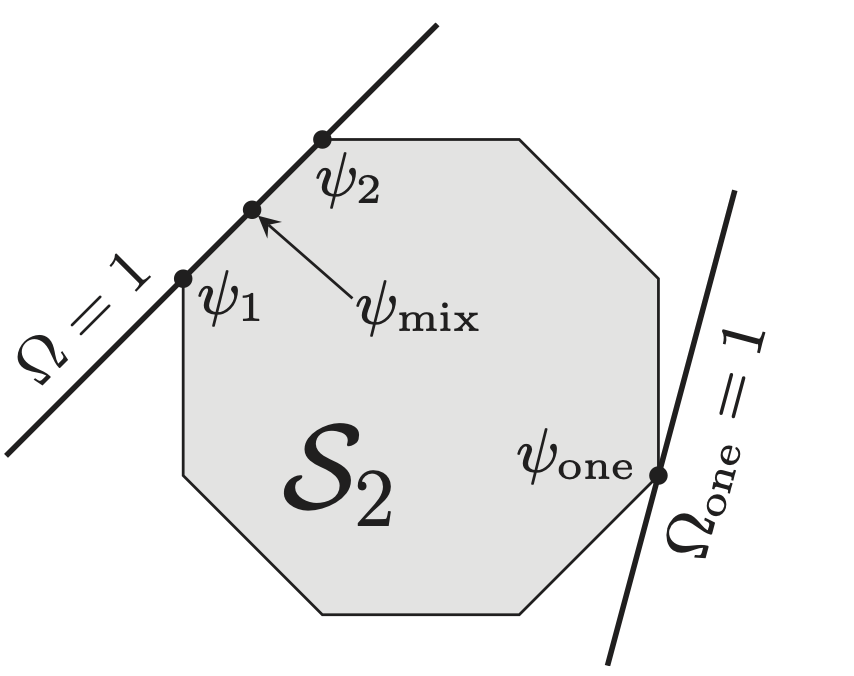 We derive the Hilbert space formalism of quantum theory from a few simple information-theoretic principles, without presupposing any of its mathematical machinery (such as operators or complex numbers). This solved a longstanding open problem in the field.
We derive the Hilbert space formalism of quantum theory from a few simple information-theoretic principles, without presupposing any of its mathematical machinery (such as operators or complex numbers). This solved a longstanding open problem in the field.
Quantum reference frame transformations as symmetries and the paradox of the third particle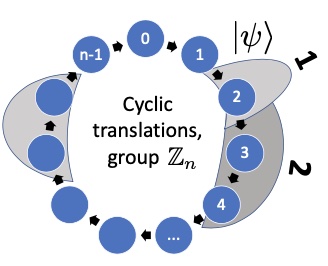 We give a rigorous analysis of internal quantum reference frame transformations for finite Abelian groups, study relational analogs of the tensor product and partial trace, and use this to resolve the “paradox of the third particle”.
We give a rigorous analysis of internal quantum reference frame transformations for finite Abelian groups, study relational analogs of the tensor product and partial trace, and use this to resolve the “paradox of the third particle”.
The quantum bit from relativity of simultaneity on an interferometer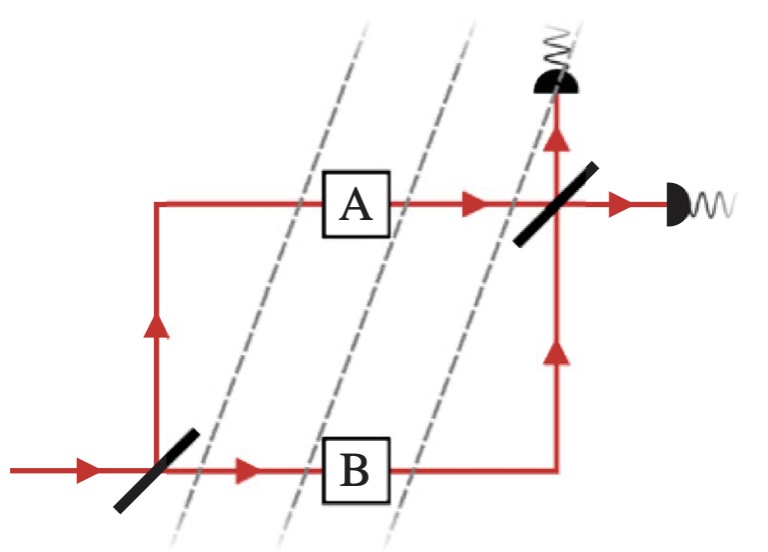 A simple thought experiment that shows a fundamental relation between spacetime and quantum theory: the qubit Bloch ball must be either 1-, 2-, 3- or 5-dimensional (i.e. classical, or quantum over the reals, complex numbers or quaternions) because of relativity of simultaneity.
A simple thought experiment that shows a fundamental relation between spacetime and quantum theory: the qubit Bloch ball must be either 1-, 2-, 3- or 5-dimensional (i.e. classical, or quantum over the reals, complex numbers or quaternions) because of relativity of simultaneity.
An operational approach to spacetime symmetries: Lorentz transformations from quantum communication Usually, we think of spacetime symmetries as fundamental and implement them unitarily in quantum theory. Here we suggest that this reasoning can be reversed: communicating quantum laboratories must be related by an element of the Lorentz group merely due to the structure of quantum theory.
Usually, we think of spacetime symmetries as fundamental and implement them unitarily in quantum theory. Here we suggest that this reasoning can be reversed: communicating quantum laboratories must be related by an element of the Lorentz group merely due to the structure of quantum theory.
Testing Quantum Theory by Generalizing Noncontextuality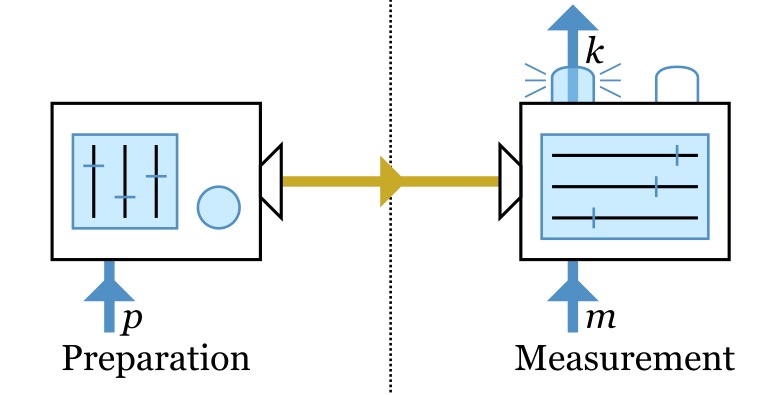 If Nature is fundamentally quantum, which effective statistics (for example, classical probabilities) can we plausibly expect to see in the lab? We give a complete answer to this question and use this to propose a novel experimental test of quantum theory.
If Nature is fundamentally quantum, which effective statistics (for example, classical probabilities) can we plausibly expect to see in the lab? We give a complete answer to this question and use this to propose a novel experimental test of quantum theory.
The measurement postulates of quantum mechanics are operationally redundant If unitary quantum mechanics leads to probabilities somehow, then these must be described by the Born rule. We give a particularly careful und rigorous proof of this, without hidden assumptions, deriving the Born and measurement update rules from the other postulates.
If unitary quantum mechanics leads to probabilities somehow, then these must be described by the Born rule. We give a particularly careful und rigorous proof of this, without hidden assumptions, deriving the Born and measurement update rules from the other postulates.
Coherence and Asymmetry Cannot be Broadcast Coherence and asymmetry are valuable resources in quantum metrology and thermodynamics. Here we prove a general no-go theorem: they cannot be reused catalytically on any finite-dimensional system, even if we allow the generation of correlations or entanglement between the systems.
Coherence and asymmetry are valuable resources in quantum metrology and thermodynamics. Here we prove a general no-go theorem: they cannot be reused catalytically on any finite-dimensional system, even if we allow the generation of correlations or entanglement between the systems.
Structure of Reversible Computation Determines the Self-Duality of Quantum Theory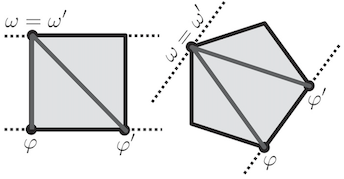 Quantum theory has the remarkable feature of self-duality: states and measurement outcomes are described (up to normalization) by the exact same mathematical objects. Here, we prove that this feature is a consequence of bit symmetry: any probabilistic theory for which all logical bits are equivalent must be self-dual.
Quantum theory has the remarkable feature of self-duality: states and measurement outcomes are described (up to normalization) by the exact same mathematical objects. Here, we prove that this feature is a consequence of bit symmetry: any probabilistic theory for which all logical bits are equivalent must be self-dual.
Stationary algorithmic probability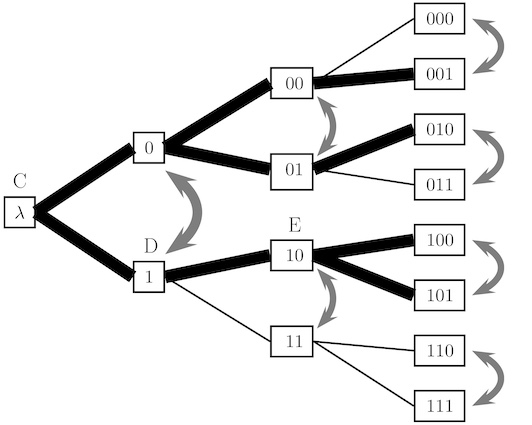 Kolmogorov complexity and algorithmic probability are always defined relative to a choice of universal computer. Can we get rid of this machine-dependence? Here, I give a natural idea for how this might be accomplished, but prove that, in the end, it cannot because of the existence of computer viruses and computable symmetries.
Kolmogorov complexity and algorithmic probability are always defined relative to a choice of universal computer. Can we get rid of this machine-dependence? Here, I give a natural idea for how this might be accomplished, but prove that, in the end, it cannot because of the existence of computer viruses and computable symmetries.
Quantum measurement occurrence is undecidable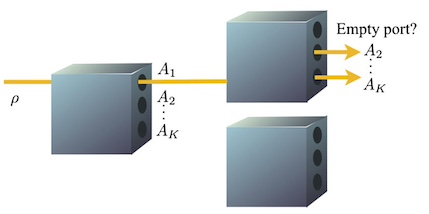 We show that a simple problem of quantum information theory is formally undecidable — that is, there does not exist any algorithm that determines the answer in all cases in a finite amount of time. Importantly, the analogous classical problem is (difficult, but) decidable.
We show that a simple problem of quantum information theory is formally undecidable — that is, there does not exist any algorithm that determines the answer in all cases in a finite amount of time. Importantly, the analogous classical problem is (difficult, but) decidable.
Law without law: from observer states to physics via algorithmic information theory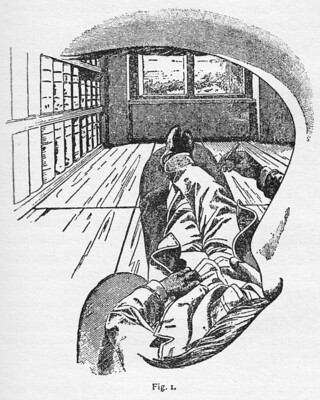 An approach to the foundations of physics in which not an external world, but a mathematical notion of the first person (“self”) is fundamental. The goal is not philosophical contemplation, but concrete predictions for puzzling thought experiments on physics, agents, computation, and cosmology. More here.
An approach to the foundations of physics in which not an external world, but a mathematical notion of the first person (“self”) is fundamental. The goal is not philosophical contemplation, but concrete predictions for puzzling thought experiments on physics, agents, computation, and cosmology. More here.
Spin-bounded correlations: rotation boxes within and beyond quantum theory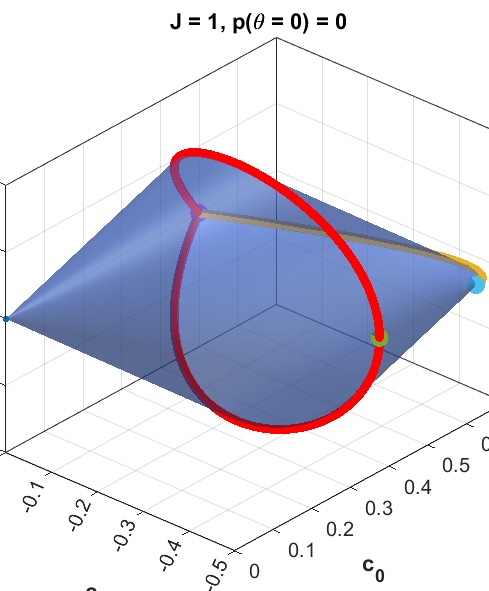 How can probabilities of events respond to spatial rotations, in any physical theory? We show that quantum theory admits all possible rotational correlations for spins 0, 1/2, and 1, but there are metrological games that can be won with higher probability via beyond-quantum spin-3/2 systems.
How can probabilities of events respond to spatial rotations, in any physical theory? We show that quantum theory admits all possible rotational correlations for spins 0, 1/2, and 1, but there are metrological games that can be won with higher probability via beyond-quantum spin-3/2 systems.
Entanglement-Asymmetry Correspondence for Internal Quantum Reference Frames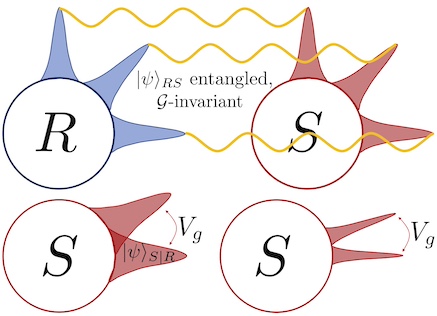 The Page-Wootters mechanism replaces background time by quantum correlations with a clock. Here we prove that the amount of entanglement with the clock tells us exactly how much time asymmetry is induced in the system, and this holds more generally for arbitrary symmetries and quantum reference frames.
The Page-Wootters mechanism replaces background time by quantum correlations with a clock. Here we prove that the amount of entanglement with the clock tells us exactly how much time asymmetry is induced in the system, and this holds more generally for arbitrary symmetries and quantum reference frames.
Higher-order interference and single-system postulates characterizing quantum theory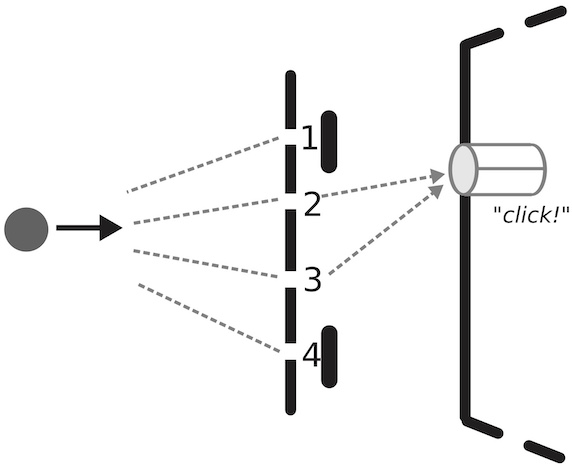 We derive quantum theory from four postulates that only refer to single systems, and not to composition: Spectrality, Strong Symmetry, No 3rd-order Interference, and Energy Observability.
We derive quantum theory from four postulates that only refer to single systems, and not to composition: Spectrality, Strong Symmetry, No 3rd-order Interference, and Energy Observability.
Thermalization and Canonical Typicality in Translation-Invariant Quantum Lattice Systems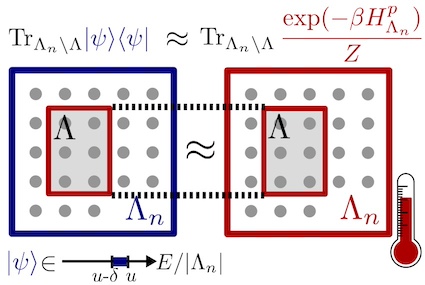 We give a rigorous proof of thermalization from entanglement: for translation-invariant quantum systems, almost all pure global states with large enough energy spread are locally for most times close to a Gibbs state.
We give a rigorous proof of thermalization from entanglement: for translation-invariant quantum systems, almost all pure global states with large enough energy spread are locally for most times close to a Gibbs state.
Stochastic Independence as a Resource in Small-Scale Thermodynamics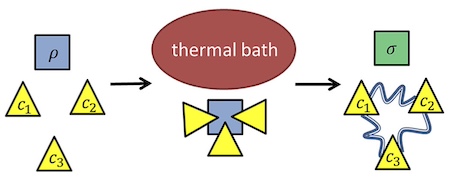 We show that creating correlations between initially uncorrelated systems can enable otherwise impossible state transitions in the resource theory of thermodynamics — the exact opposite of what one might naively expect with standard intuition.
We show that creating correlations between initially uncorrelated systems can enable otherwise impossible state transitions in the resource theory of thermodynamics — the exact opposite of what one might naively expect with standard intuition.